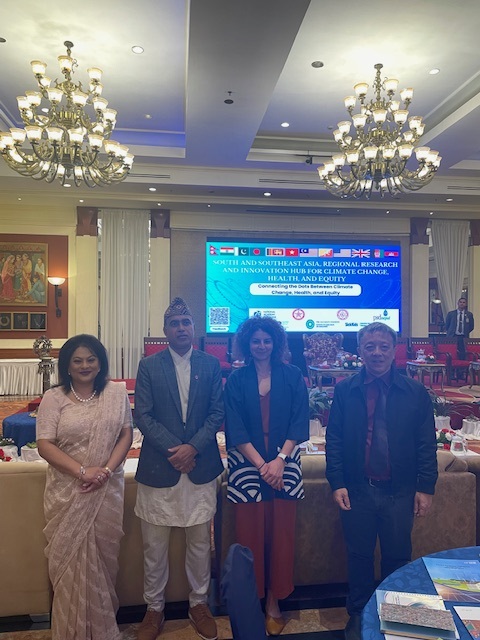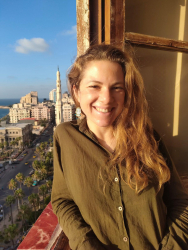The US National Academy of Medicine (NAM), the National Academy of Science and Technology, Nepal, IAP and other partners recently co-organized a two-day workshop in Kathmandu, Nepal, focusing on the critical intersection between climate change and public health. Held on 14 and 15 March 2024, the event garnered significant attention from experts, policymakers and stakeholders both locally and globally.
Themed 'Connecting the Dots Between Climate Change and Health', the workshop brought together esteemed organizations such as the US National Academy of Medicine (NAM), the Partnership for Sustainable Development Nepal, the Nepal Health Research Council, the National Academy of Science and Technology, Nepal, SickKids Centre for Global Child Health and the Institute for Global Health & Development at The Aga Khan University, among others.

Distinguished speakers including the Rt. Honorable Prime Minister of Nepal Pushpa Kamal Dahal-Prachanda, Dr. Victor J. Dzau, President of the US National Academy of Medicine and Dr. Rania Kosti, IAP Executive Director, shared insights and expertise on urgent needs, challenges and opportunities to address the health impacts of climate change in the South and Southeast Asia region.
The workshop aimed to identify key strategies for mitigating climate-related health risks, highlighting best practices and policies while emphasizing the importance of regional partnerships and commitments.
"This event provided a crucial platform for dialogue and collaboration," remarked Dr. Zulfiqar Bhutta, Founding Director of the Institute for Global Health and Development at The Aga Khan University. "By bridging science, policy and community engagement, we are better equipped to address the complex challenges posed by the climate crisis."
Participants engaged in robust discussions, sharing innovative approaches and solutions to combat rising rates of water-borne and vector-borne diseases, worsening air pollution and other climate-related hazards prevalent in the region.
"We are delighted by the success of this workshop," expressed Dr. Bishnu Bhatta, Director of the Partnership for Sustainable Development Nepal. "It underscores the urgent need for collective action to safeguard public health in the face of climate change."
The workshop, held both in-person and online, facilitated broader participation and knowledge exchange, ensuring that insights and outcomes reached a diverse audience committed to driving positive change.
"A comprehensive strategy is needed to address the complexities of climate change, health, and social justice," emphasized Nepal's Prime Minister Pushpa Kamal Dahal 'Prachanda' during his address at the workshop. He underlined the imperative for such a strategy to mitigate the effects of climate change, including increasing diseases, malnutrition, pollution and natural disasters in communities.
"These challenges have pushed human health and the environment towards confusion, pointing out the need for comprehensive programs at the local level," stated Prime Minister Prachanda. "To strengthen our health system and community, research, innovation and local knowledge should be utilized. Especially for less developed and mountainous countries like ours, the reality of climate change and its consequences are profound."
The Prime Minister also drew attention to the increasing frequency and severity of natural disasters such as landslides, floods, forest fires, glacier explosions and droughts, which disproportionately affect vulnerable populations. He stressed the need for international cooperation and support, urging developed economies to provide essential resources and technology to address the challenges faced by least developed countries.
The workshop provided a needed platform for dialogue and collaboration, facilitating discussions on innovative approaches and solutions to combat climate-related health risks. Participants expressed optimism about the potential for collective action to drive positive change and enhance resilience in the face of climate change.
IAP extends its gratitude to all partners, speakers and participants for their invaluable contributions to this event. As we reflect on the workshop's outcomes, we are inspired to continue our collaborative efforts in advancing climate-resilient health systems and promoting equity across communities.

